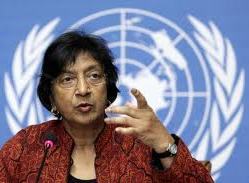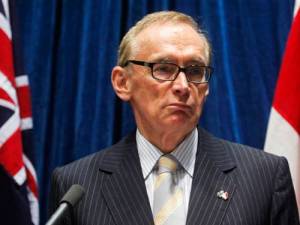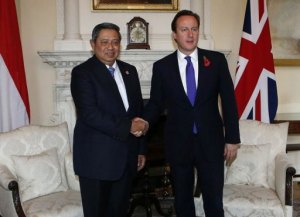The United Nations (UN) High Commissioner for Human Rights, Navanethem Pillay has stated that Indonesia has been making an increasingly significant contribution to the cause of human rights regionally as well as globally.
 “Through its constructive role in the regional human rights mechanisms of the Association of South East Asian Nations (ASEAN) and at the Human Rights Council, Indonesia has made an important contribution to the advancement of human rights,” she said during a press conference at the United Nations Information Centre (UNIC) here on Tuesday.
“Through its constructive role in the regional human rights mechanisms of the Association of South East Asian Nations (ASEAN) and at the Human Rights Council, Indonesia has made an important contribution to the advancement of human rights,” she said during a press conference at the United Nations Information Centre (UNIC) here on Tuesday.
Pillay noted that Indonesia has earned much praise for its ratification of many international human rights treaties.
She pointed out that the country took part in eight core human rights conventions and committed itself to the ratification of the Optional Protocol to the Convention Against Torture (OPCAT) and the Convention for the Protection of All Persons from Enforced Disappearance.
“Indonesia has also recently ratified the Convention on the Rights of Migrant Workers, which encourages neighbouring countries to embrace international human rights standards in order to protect the rights of migrants,” Pillay said.
She stated that, during her visit to Indonesia, she “encouraged the government to accede to the 1951 Refugee Convention and its 1967 Protocol”.
Based on UN data, Indonesia has accepted 150 of the 180 recommendations made during the Universal Periodic Review under the Human Rights Council.
“I was also pleased to learn that the Indonesian government recently agreed to a visit by the Special Rapporteur on Freedom of Expression, which I hope will encourage other governments in the region to follow suit,” Pillay said.
She also praised three human rights institutions — the National Human Rights Institutions (Komnas HAM), the National Commission on Violence against Women (Komnas Perempuan), and the National Committee for Child Protection — for their efforts in promoting human rights across the country.
“These institutions are vital for the protection of human rights in Indonesia and I commend the government for supporting them. I hope the government will also provide them with increased financial support,” Pillay stated.
“The central and local governments should be proud of the work that these institutions do, see them as partners, and ensure their protection throughout the country,” she added.
Earlier, on November 7, Pillay arrived in Bali to attend the 5th Bali Democracy Forum. After taking part in the forum, she visited Jakarta at the invitation of the Indonesian government.
During her stay in Jakarta, Pillay held meetings with Indonesian ministers and officials, UN organizations and the diplomatic community, as well as national human rights institutions.
Source: ANTARA News



